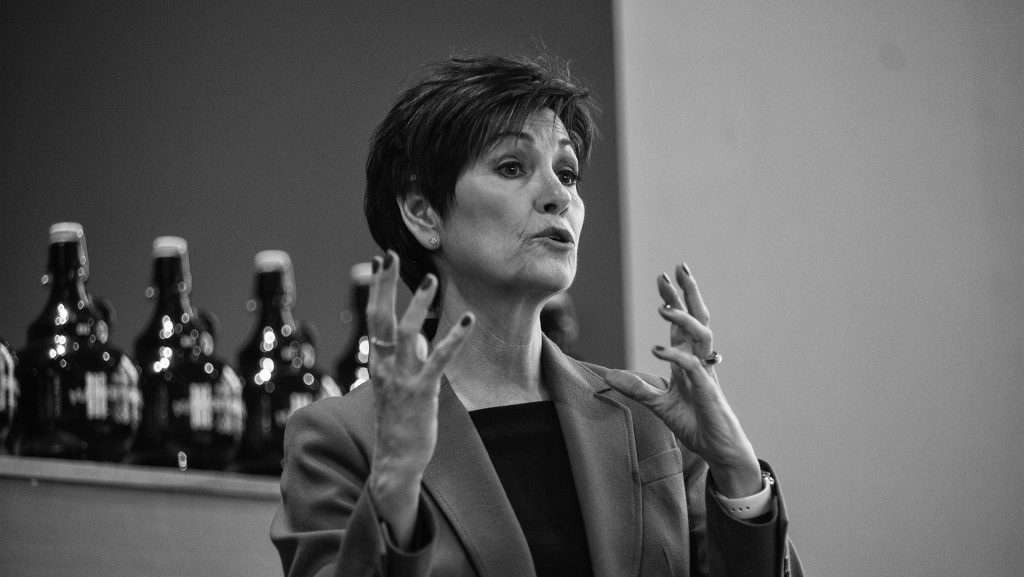Iowa legislators are wrapping up the 2018 legislative session, but as the 100th day of the session passes, work on the state’s fiscal situation for next year remains unresolved under the golden dome.
The state Legislature has yet to pass a fiscal 2019 budget or a tax-reform package that Republican Gov. Kim Reynolds called for in her Condition of the State address in January.
The tax rates affect the revenue the state brings in, making it difficult to finalize a budget until Iowa’s elected officials sign off on a tax plan. Until legislators reach a deal and the governor approves it, the session — which was supposed to end Tuesday — will not adjourn, though legislators will no longer receive compensation for their work in Des Moines.
The Senate previously passed tax-reform legislation Feb. 28, but after the House introduced its newest proposal April 12, the two chambers still have to hammer out a deal. The House’s Middle Class Tax Relief Act would reduce Iowans’ state taxes by $1.3 billion by 2023, according to a statement from House Speaker Linda Upmeyer.
“Our plan puts middle-class Iowans and families at the front of the line and prioritizes them to receive the biggest tax cuts, while also ensuring we can responsibly balance the state budget in future years,” Upmeyer said. “This plan is fair, sustainable, and modernizes our state’s tax code for the 21st-century economy.”
At her weekly press conference Monday, Reynolds declined to provide details on the lack of consensus between the plans released by both the House and the Senate as well as her own proposal, which was unveiled in February. She said the release of the different plans and ongoing conversations are part of the consensus-building process.
“We find where we have consensus, where maybe there’s some disagreements, and we look for opportunity to align,” she said of the different proposals between the legislative and executive branches.”
Reynolds said she is grateful for the December passage of the Federal Tax Cuts and Jobs Act, which reduced federal taxes for Iowans by $1.8 billion per year. She urged tax reform in the state because of Iowa’s federal deductibility.
Iowa tax filers are permitted to deduct the value of their federal income taxes from their state taxable income. This makes it so that when federal taxes go down, the state’s automatically increase.
“… That [increase is] on small businesses, and that’s on families with children, because those tax cuts were really targeted toward that,” she said. “And I don’t want to see that happen, and so that’s a motivator to get something done with tax reform this year.”
Additionally, Reynolds said the tax-reform package would need to be sustainable so the state could fund priorities such as Medicaid and education. The House and Senate are in the process of proposing fiscal 2019 budgets. Joint subcommittees are meeting this week to propose line-item appropriations for their respective areas of the budget.
Democrats have criticized the Republican Party’s budgeting practices and inability to fund priorities, particularly after the Legislature was forced to make midyear budget cuts for a second-consecutive year to close a projected state budget shortfall. The fiscal 2018 funding cuts amounted to $35.5 million.



